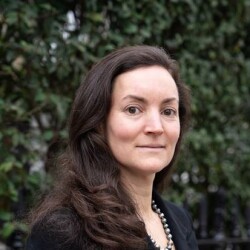Longevity matters in finance. And in the fast-evolving market of green and ESG-linked finance, being an early mover not only brings advantages it can help differentiate one bank from another.
For Crédit Agricole CIB, one of the earliest movers on green and ESG-linked finance in the banking industry, the bank continues to show leadership in the market and play a central role in supporting its growth and development. Importantly, it does so in a way only a bank that has been involved from the beginning can. It is for these reasons, together with the expert, trusted advice and depth and variety of financing support it has provided to clients, that the bank is GlobalCapital’s Best Arranger of Green and ESG-linked loans in western Europe.
In fact, it is for many of the same reasons that Crédit Agricole CIB has also won Most Innovative Bank for ESG Lending, as well as Best Arranger of Project Finance Loans, and Best Arranger of French Loans.
Koo Cho, managing director and head of EMEA project finance debt distribution at Crédit Agricole CIB, believes the bank’s long experience and expertise in ESG is a competitive advantage.
Cho is key member of a well-established platform that strives to incorporate ESG into every aspect of project finance – with decarbonisation and digitalisation as the driving forces. Her team is involved in emerging areas such as green ammonia, hydrogen, carbon capture and biofuels.
It’s rewarding when our personal beliefs are so aligned with our company’s, and Crédit Agricole CIB is very proud of its commitment to society

Of the 16 project finance deals that the bank has in the market or is about to launch as underwriter, placement agent or financial advisor, 14 boast a clear green, social or energy transition theme, such as renewables, fibre in rural areas, electric mobility and hydrogen.
Lucie Campos Caresmel, managing director and head of EMEA corporate loan distribution at Crédit Agricole CIB, says one of the bank’s main objectives is to support clients in making the energy transition. To that end, 50% of the transactions her team led in 2021 were sustainability-linked loans (SLL).
“A lot of work has been done over the last four years to standardise definitions of ESG, sustainability and green in the loan market, mainly via the Loan Market Association (LMA), the Loan Syndications and Trading Association (LSTA) and the Asia Pacific Loan Market Association (APLMA). The aim of these principles is to facilitate the harmonisation of standards and set expectations,” says Campos.
Within this development, KPIs have risen to become an important area, with the bank’s clients increasingly keen to tie them to decarbonisation.
“Clients and markets are getting more sophisticated, and look to align corporate targets with external benchmarks,” says Campos, who adds that the bank often wins ESG coordinator mandates.
According to the SLL Principles, objectives must fit with the company strategy, as well as being ambitious, material and relevant.
Not only does ESG finance help clients, suppliers and employers showcase their efforts, but it can contribute to structure and measure the impact they make

ESG has outgrown the PR exercise to become an essential part of corporate structure and strategy, says Campos. “Not only does ESG finance help clients, suppliers and employers showcase their efforts, but it can contribute to structure and measure the impact they make.”
What’s more, adds Cho, by inserting KPIs in a legally binding document in which a borrower undertakes to achieve a specific objective, investors will understand that its efforts are genuine.
Beyond those already seeking ESG-indexed loans, other companies are developing relevant KPIs internally, says Campos. This is significant because it demonstrates the backing of boards and management teams. The integration of the KPIs into the corporate financing sphere of the company via a SLL can – and hopefully will – come at a later stage.
Each market player has the opportunity to take its own steps, says Campos. And while European companies are showing global leadership in this area, companies in the Americas and Asia are also advancing. In turn, this is spurring advancements in economic interests, energy dependence and employment, creating a virtuous circle that also extends to individuals. “It’s rewarding when our personal beliefs are so aligned with our company’s, and Crédit Agricole CIB is very proud of its commitment to society,” says Cho.
